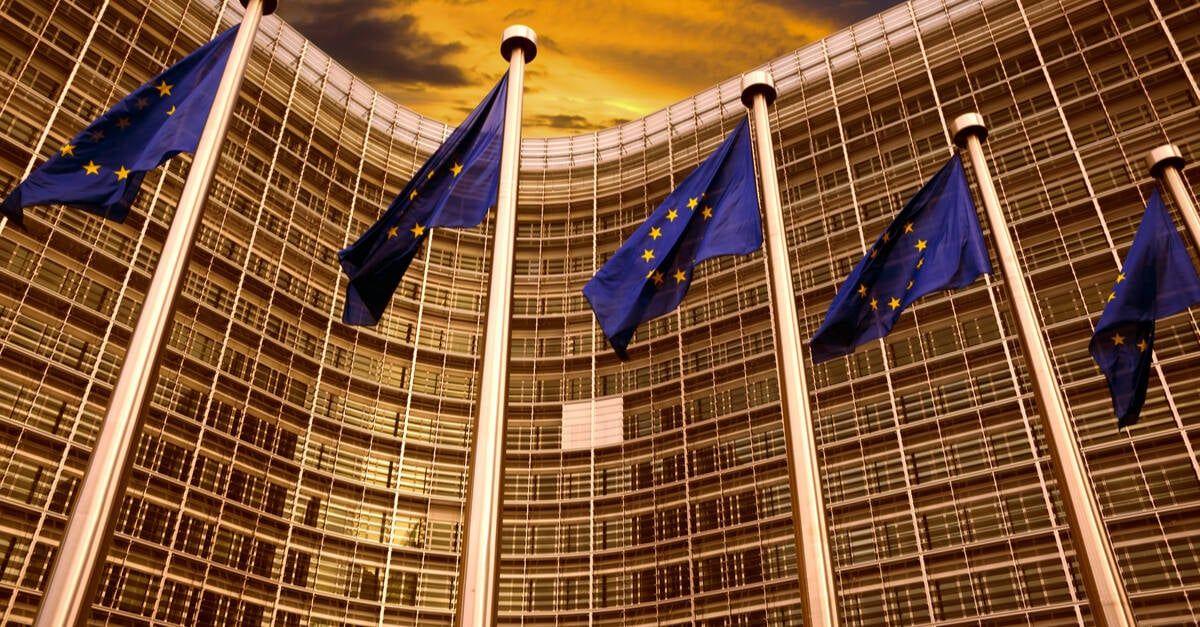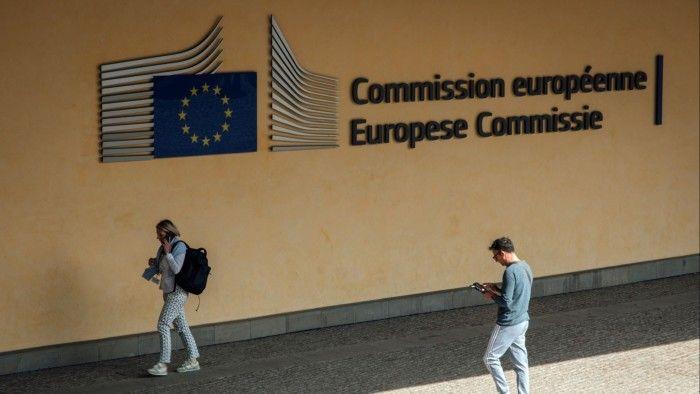EU Considers Loosening AI and Data Regulations Amid US Competition
2 Sources
2 Sources
[1]
Facing US competition, EU suggests loosening AI, data rules
The EU said Wednesday it is considering streamlining artificial intelligence and data rules as part of a broader push to help European businesses keep up with US and Chinese rivals. The European Union long heralded its legal arsenal on tech as an example for the world, but the tone has shifted since the return of US President Donald Trump. Just weeks into his new role, Vice President JD Vance zeroed in on the rules as part of a broadside against the EU's social and economic model, warning "excessive regulation" on AI in particular could kill the emerging sector. Mindful that European businesses are also pushing back at rules they say are cumbersome and hurt innovation, the EU will look at "possible further measures to facilitate compliance and possible simplification of the AI Act," the European Commission said. While vowing that Brussels remained committed to the AI law, EU tech chief Henna Virkkunen said Brussels wanted to see if there was an "extra administrative burden" it could remove. She noted it would not be "harming anyone if we cut some reporting obligations." Under the rules, companies offering high-risk AI systems must assess and mitigate the threats their models pose. Unveiling measures to ramp up AI infrastructure in Europe as part of a new "AI Continent Action Plan," the EU also raised the prospect of "streamlining existing data legislation." The aim, the commission said, would be "to reduce complexity and administrative burden and to ensure that data governance structures are efficient and effective." There was no direct reference to the mammoth data General Data Protection Regulation (GDPR), a major bugbear for companies around the world because of the compliance costs. But Justice Commissioner Michael McGrath had previously indicated the GDPR would be subject to "simplification," with an announcement expected in coming weeks. It will be the latest in a deregulation drive after the EU's rollback of environmental rules in February, as Europe pivots to bolstering competitiveness as its main priority.
[2]
Facing US competition, EU suggests loosening AI, data rules
Just weeks into his new role, Vice President JD Vance zeroed in on the rules as part of a broadside against the EU's social and economic model, warning "excessive regulation" on AI in particular could kill the emerging sector. Mindful that European businesses are also pushing back at rules they say are cumbersome and hurt innovation, the EU will look at "possible further measures to facilitate compliance and possible simplification of the AI Act", the European Commission said.The EU said Wednesday it is considering streamlining artificial intelligence and data rules as part of a broader push to help European businesses keep up with US and Chinese rivals. The European Union long heralded its legal arsenal on tech as an example for the world, but the tone has shifted since the return of US President Donald Trump. Just weeks into his new role, Vice President JD Vance zeroed in on the rules as part of a broadside against the EU's social and economic model, warning "excessive regulation" on AI in particular could kill the emerging sector. Mindful that European businesses are also pushing back at rules they say are cumbersome and hurt innovation, the EU will look at "possible further measures to facilitate compliance and possible simplification of the AI Act", the European Commission said. While vowing that Brussels remained committed to the AI law, EU tech chief Henna Virkkunen said Brussels wanted to see if there was an "extra administrative burden" it could remove. She noted it would not be "harming anyone if we cut some reporting obligations". Under the rules, companies offering high-risk AI systems must assess and mitigate the threats their models pose. Unveiling measures to ramp up AI infrastructure in Europe as part of a new "AI Continent Action Plan", the EU also raised the prospect of "streamlining existing data legislation". The aim, the commission said, would be "to reduce complexity and administrative burden and to ensure that data governance structures are efficient and effective". There was no direct reference to the mammoth data General Data Protection Regulation (GDPR), a major bugbear for companies around the world because of the compliance costs. But Justice Commissioner Michael McGrath had previously indicated the GDPR would be subject to "simplification," with an announcement expected in coming weeks. It will be the latest in a deregulation drive after the EU's roll back of environmental rules in February, as Europe pivots to bolstering competitivity as its main priority.
Share
Share
Copy Link
The European Union is contemplating streamlining its artificial intelligence and data rules to help European businesses compete with US and Chinese rivals, signaling a shift in its regulatory approach.

EU Shifts Stance on AI and Data Regulations
The European Union, once proud of its stringent tech regulations, is now considering a significant policy shift. In response to mounting pressure from US competition and concerns from European businesses, the EU is exploring ways to streamline its artificial intelligence (AI) and data rules
1
2
.Competitive Pressures and Political Landscape
The return of US President Donald Trump and the appointment of Vice President JD Vance have intensified the scrutiny of EU regulations. Vance has been particularly critical, warning that "excessive regulation" on AI could stifle the emerging sector
1
. This political pressure, coupled with pushback from European businesses claiming the rules are cumbersome and hinder innovation, has prompted the EU to reconsider its regulatory approach2
.Proposed Changes to AI Regulations
The European Commission has announced it will investigate "possible further measures to facilitate compliance and possible simplification of the AI Act"
1
. EU tech chief Henna Virkkunen emphasized that while Brussels remains committed to the AI law, they are looking to remove any "extra administrative burden"1
2
.One area under consideration is the reduction of reporting obligations for companies. Currently, the AI Act requires companies offering high-risk AI systems to assess and mitigate the threats their models pose
1
.Data Legislation Streamlining
As part of its new "AI Continent Action Plan," the EU is also considering streamlining existing data legislation
1
2
. The goal is to "reduce complexity and administrative burden and to ensure that data governance structures are efficient and effective"1
.While not explicitly mentioned, there are indications that even the General Data Protection Regulation (GDPR) might be subject to simplification. Justice Commissioner Michael McGrath has hinted at upcoming changes to the GDPR, with an announcement expected in the coming weeks
1
2
.Related Stories
Broader Deregulation Trend
This potential loosening of AI and data rules is part of a larger deregulation drive in the EU. It follows the recent rollback of environmental rules in February, signaling a shift in priorities towards bolstering competitiveness
1
2
.Balancing Act for the EU
The EU now faces a delicate balancing act. On one hand, it needs to maintain its commitment to responsible AI development and data protection. On the other, it must ensure that European businesses can compete effectively on the global stage, particularly against US and Chinese rivals
1
2
.This potential policy shift represents a significant change in the EU's approach to tech regulation, moving from a position of global leadership in stringent rules to a more flexible stance aimed at fostering innovation and competitiveness in the AI sector.
References
Summarized by
Navi
[1]
Related Stories
EU Considers Major Rollback of GDPR and AI Regulations Amid Competitiveness Concerns
10 Nov 2025•Policy and Regulation

EU Scales Back AI Regulations, Denies US Influence in Decision
14 Feb 2025•Policy and Regulation

Europe Retreats on Tech Regulation: GDPR and AI Act Face Major Rollbacks Under Industry Pressure
19 Nov 2025•Policy and Regulation

Recent Highlights
1
Google Gemini 3.1 Pro doubles reasoning score, beats rivals in key AI benchmarks
Technology

2
Pentagon Summons Anthropic CEO as $200M Contract Faces Supply Chain Risk Over AI Restrictions
Policy and Regulation

3
Canada Summons OpenAI Executives After ChatGPT User Became Mass Shooting Suspect
Policy and Regulation





